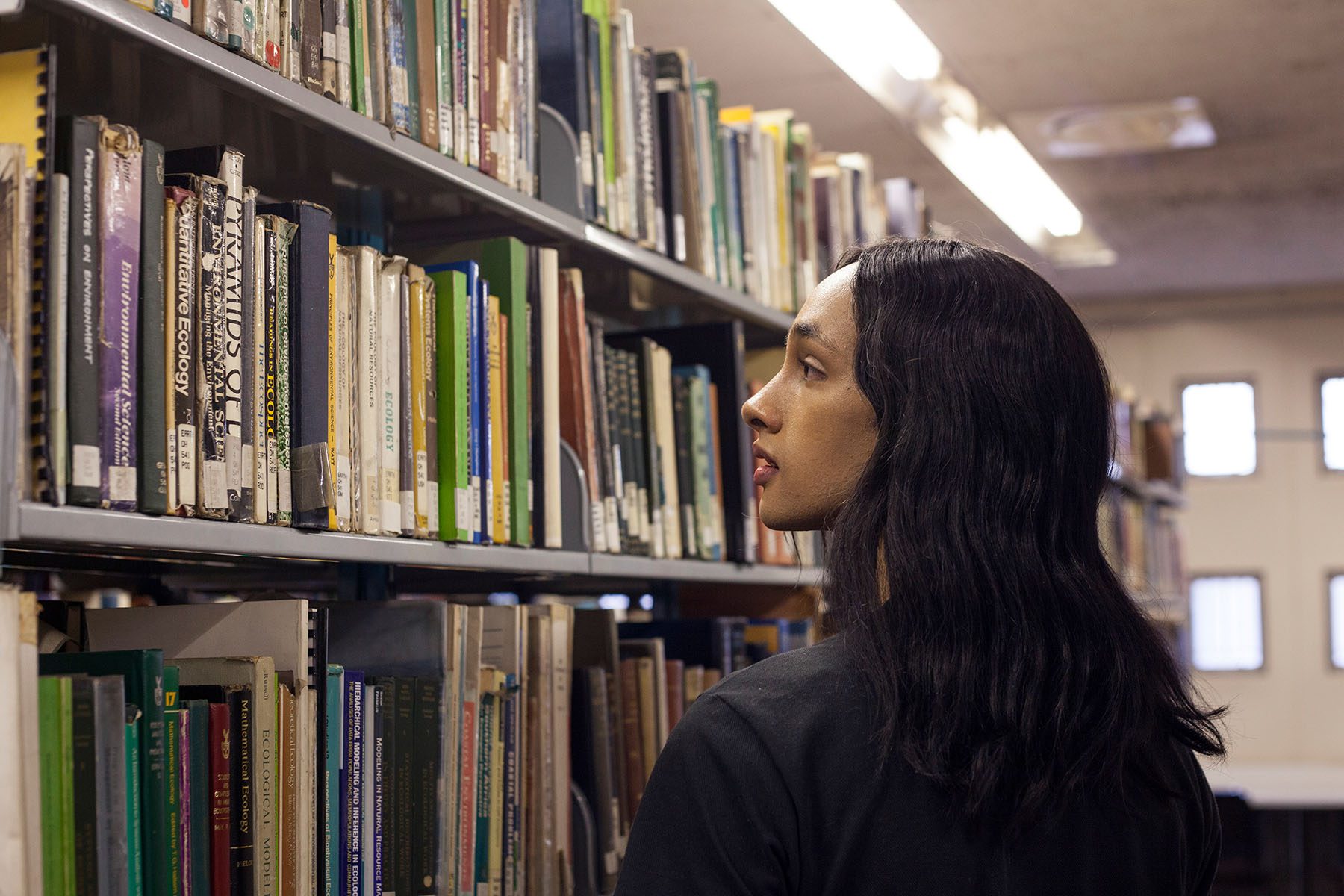Editor’s note: The Biden administration announced after this piece published that it would be forgive $10,000 in federal student loan debut for most borrowers and $20,000 for recipients of Pell Grants.
College didn’t work out for Jude Ruelas.
The pressure of being trans in his program and his chosen profession — choir education — was daunting. So was the inherent stress of navigating their own transition. Ruelas ultimately decided they were not in the right mental space to handle it, and left their B.A. program at the University of Utah in May 2019.
It was the right decision, they said. It was also a decision that left them in a worse position to repay $23,000 in student loans for a degree that they didn’t finish, and still aren’t sure they can afford to complete.
The Biden administration is weighing further action on student loan debt before August 31, when the current payment pause ends. Forgiving student loans could help trans borrowers like Ruelas, especially since so many of them take on more financial burdens to access higher education than cisgender students. That extra financial weight sits on top of additional mental and emotional burdens they are more likely to face, no matter the school setting, according to the Williams Institute at the University of California, Los Angeles.
The study, of 1,079 adults surveyed in early 2021, found that trans students were more likely to have federal student loans than cisgender queer students. While 23 percent of the surveyed straight students said they had taken out federal student loans, the number was 33 percent for cisgender LGBTQ+ students — and 51 percent for trans students.
Taking on more debt through federal loans means that trans students have more to repay after college — and may be less able to pay it off overall, said Spencer Watson, executive director at the center for LGBTQ Economic Advancement & Research. This only compounds when students need additional financial support to pursue graduate degrees.
It’s how Quita Tinsley Peterson found themselves with almost $100,000 in student loan debt. Peterson, who grew up in a small Georgia town where they couldn’t be out as a queer person, took out student loans to cover living expenses at Georgia State University. Still, they had to spend most of their time working multiple jobs in undergrad just to survive.
Peterson couldn’t qualify for food stamps as a full-time student, since they didn’t have the capacity to work 20 hours a week on top of their class load. That experience meant they had less freedom to explore their identity — and build a greater community — than other students.
In graduate school, the financial stress only mounted. Although Peterson’s tuition was covered, they needed to focus on school, and that meant quitting their job – and taking on more debt. Being a full-time student and full-time worker couldn’t mix, and they ultimately had to leave the program.
“I was not doing well. I was crying all the time and so stressed out,” they said.
Now 32, Peterson works as a communications consultant for reproductive health and social justice organizations.
“As a Black, nonbinary person, education doesn’t necessarily feel like a pathway out of poverty if we aren’t creating infrastructure to support people without taking on so much debt,” they said. Georgia State University did not respond to a request for comment.
Kyle Inselman, a career advisor and adjunct instructor at the University of Denver, reflected that trans and nonbinary college students — including himself, a trans person who has been a student for most of the past 15 years — face compounding issues that do not impact cis queer students.
Some trans men return to grad school to find that they need to file additional selective service paperwork following their transition in order to access federal financial aid, Inselman said. College counselors need to be educated on trans issues in order to help students, trans student employees should be safe from job discrimination, and career advising should help trans students prepare for obstacles they’ll face in the job market, he said.
The Free Application for Federal Student Aid or FAFSA, which determines how much federal financial aid students qualify for, can reject applications when legal names or gender markers aren’t consistent across identity documents. The FAFSA only asks students if they are male or female, which advocacy groups say invalidates students and can sow confusion in the application process. The Education Department plans to pilot a survey this fall asking students if they are trans or nonbinary in a survey accompanying the FAFSA — which will not be used to calculate aid.
The agency should also ask for students’ sexual orientation and intersex status, advocacy groups including the center for LGBTQ Economic Advancement & Research argued in an August letter — since queer students also face significant financial barriers to education.
More unique problems for trans students handling student loans also remain. Many trans people face issues when trying to manage or repay their loans after legally changing their name — and trying to get their name updated within the servicers’ system, Watson said.
On top of student debt, and the many barriers that trans people face to access higher education in the first place, isolation can also be a defining feature for some students.
For Alix Bruce, 29, academia got progressively more isolating as they continued their education. They knew of only three other out trans students while they were attending the American University Washington College of Law from 2017 to 2020.
Being misgendered by teachers or administrators and having to fight for the use of they/them pronouns in the classroom both contributed to that feeling of isolation. Higher academia is already difficult for trans and gender-nonconforming people to access in the first place, they said — making it all the more disheartening when the environment many work so had to get into cannot evolve or accept them.
“It’s really crushing to deal with it when you do get through and you’ll still find that there’s consistent blatant transphobia,” they said.
In a statement, American University said it aims “for transgender students to thrive at AU,” and that students can use a chosen name and pronouns within university systems. Students being misgendered can file a complaint to the school’s Title IX office, spokesperson Hakan Özsancak said, pointing to the school’s policies and where students can report discrimination.
Over half of trans students at programs from community college to graduate school surveyed by the Williams Institute said that their mental health was poor all or most of the time while at school.

When Ruelas, now 24 and working as an event manager at the University of Utah, reflects back on their time in college, they think about the student loan debt that they took on for a degree they didn’t finish, in part so they could transition in a more private way.
He had already dreamed of being a choir teacher, and he wanted to support young students also exploring their gender identities, and utilize his experience of singing through two different puberties while transitioning.
His advisor, who had taught in the Midwest as a closeted gay man, warned Ruelas about the emotional cost of teaching as a nonbinary trans man in a relatively conservative state like Utah.
“Basically he was like, ‘You’re going to have to choose to be out and deal with those consequences or stay closeted and deal with that set of stressors,’ and neither option felt doable,” Ruelas said. Being out could bring pushback from parents, or may not be safe, and being closeted would bring on its own anxiety.
It was a lot to think about while Ruelas was at his own crossroads. The University of Utah shared its non-discrimination policy and resources for trans students, in response to a request for comment.
Transgender college students have a deeper sense of feeling like they don’t fully belong at school due to their identity than their cisgender peers, the Williams Institute found. More trans college students also say they face harassment at school and barriers to academic success caused by their identity than cisgender LGBTQ+ students.
This has mental health implications, especially when coupled with higher rates of bullying and harassment, said Kerith Conron, research director and Blachford-Cooper distinguished scholar at the Williams Institute.
“We have work to do that goes beyond just establishing basic safety as a goal,” she said. “If you don’t feel like you can be out and you don’t feel like you belong, then how can you fully realize your potential in those environments?”







